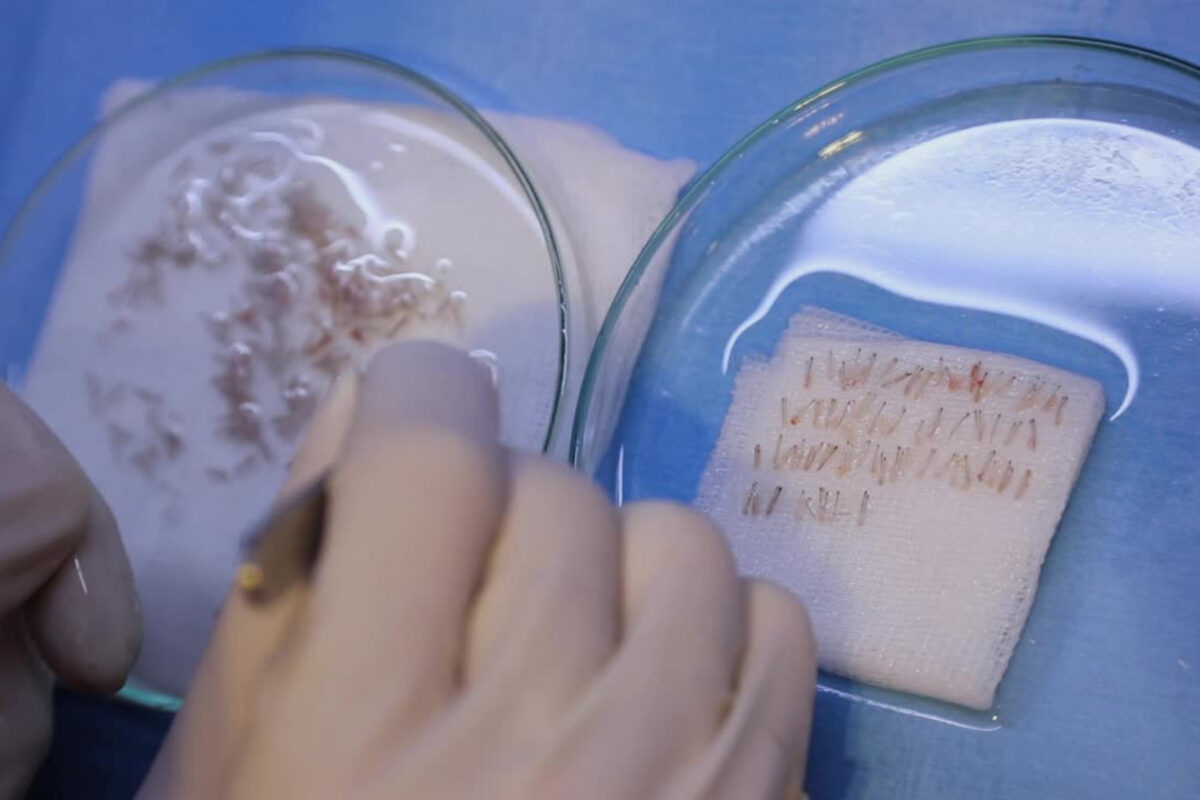Hair transplant surgery has long been an effective solution for individuals dealing with hair loss. One of the most common questions that comes up is “Can you use someone else’s hair for a hair transplant?” Let’s delve into the myths and realities surrounding this intriguing question.
Hair Transplant Basics
Before diving into the topic, let’s briefly review the fundamentals of a hair transplant. There are two primary methods for hair transplantation: Follicular Unit Transplantation (FUT) and Follicular Unit Extraction (FUE).
– FUT: In FUT, a strip of hair-bearing skin is surgically removed from the donor area (typically the back of the scalp). This strip is then dissected into individual hair follicles for transplantation.
– FUE: FUE involves the extraction of individual hair follicles directly from the donor area using a specialized punch tool.
In both methods, the hair follicles from one area of the body (usually the back of the scalp) are carefully transplanted into the recipient area (the balding or thinning region) to promote hair growth.
Can You Use Someone Else’s Hair?
The short answer is yes, it is possible to use someone else’s hair for a hair transplant. This process is known as “hair transplantation from a donor” or “donor hair transplantation.” However, there are some critical considerations to keep in mind:
- Tissue Compatibility: For a successful transplant, hair follicles must be compatible with the recipient’s body. Using hair from another person poses significant challenges in terms of compatibility. Each person’s body has a unique genetic makeup and hair characteristics. This means that the hair from another person should be a close match to the recipient’s hair type, color, and texture to achieve a natural-looking result.
- Immune Response: When using donor hair there is a higher risk of graft failure, where the transplanted hair follicles do not survive in the new environment. The recipient’s immune system may recognize the transplanted hair as foreign tissue, leading to rejection. Immunosuppressive medications might be required to prevent this reaction.
- Ethical Considerations: Beyond medical challenges, there are ethical considerations in using another person’s hair for a transplant. It’s crucial to have the explicit consent of the donor and ensure that all relevant legal and ethical guidelines are followed.
The Ideal Solution: Personalized Hair Transplants
While it is possible to use another person’s hair for a hair transplant, it is not the most common approach. Instead, patients typically use their own hair from a donor area on their scalp or, in some cases, body hair.
Modern hair transplant procedures focus on personalized solutions. Each patient’s hair loss pattern, hair type, and overall health are carefully evaluated by a hair restoration specialist to create a customized treatment plan. By utilizing the patient’s own hair follicles, the risks of rejection are minimized, and the hair transplant results are natural-looking and long-lasting.
While the concept of using someone else’s hair for a transplant might sound intriguing, using one’s own hair ensures a higher likelihood of compatibility, minimizes the risk of rejection, and eliminates many ethical and legal concerns associated with donor hair transplantation.
Before considering a hair transplant, it’s essential to consult with a qualified and experienced hair transplant specialist. They can assess your unique situation, discuss your options, and recommend the best approach to achieve your desired results.
Anagen Hair Restoration’s knowledgeable and friendly hair restoration specialists will help assess your goals and provide you unbiased support. Our network of trusted dermatologists, surgeons, and surgical technicians ensure you’ll receive the best care at the most convenient location for you in Maryland, Washington DC, Virginia and New Jersey. Contact us today at (301) 591-6552 to schedule a consultation and learn more about your hair restoration options or visit anagenhairrestoration.com for more information.

